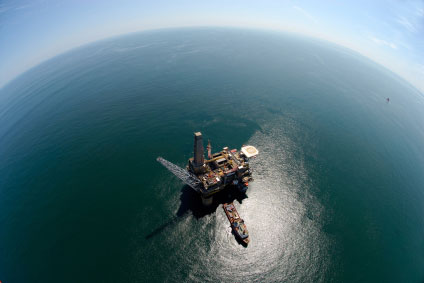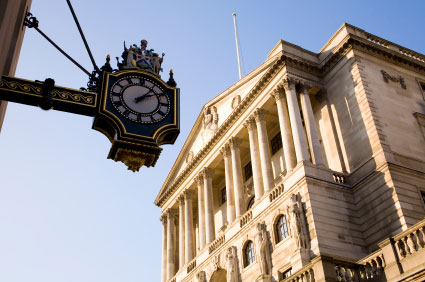When investors decide where to place their money they look at a theme. They then select an exact ‘vehicle' (a mutual fund or stock for example) to invest in. An investment theme is a general prediction based on a certain sector of the market. For example, if you believe that the current build up in crude oil stock-piles (increased supply) won’t drag the price of oil down as much as the shutdown of oil exploration projects will pull it up (decreased supply), you may want to invest in oil either directly or indirectly, for example in the equity markets of an oil dependent country like Russia.
Although we’ll take a look at some of the themes that we especially like, and although a great financial adviser will have researched his own thematic investment strategies, it’s useful and interesting to build up the tools to understand how these themes might have come about.
Oil
Crude Oil is so named because it’s the raw mixture of naphtha (plastics), gasoline, petroleum gas, diesel, petroleum jelly, and many other parts that, for better or for worse, fuel the engine of the world economy. Broadly, and with the notable exception of the US, it’s a commodity that isn’t found where it’s needed and isn’t needed much where it’s found. This means that it’s a very fiercely traded commodity. Almost without exception Crude Oil is traded and priced in USD and so carries a currency risk if you save or spend in anything else. Your financial adviser will help you hedge this risk by investing elsewhere.
To understand the price of oil, you need to look at several factors. The first is the supply of oil.
 This is, at least in the short term, set by the Organization of the Petroleum Exporting Countries (OPEC) quotas. OPEC is a cartel of oil producers and they collude on the amount they export. The second factor, oil reserves, refers to the oil held is the US Strategic Petroleum Reserve as well as other worldwide refineries. A third factor is demand, which is affected by the industrial activity in various countries, particularly the USA and China. It’s also seasonal – when its winter in the northern hemisphere, demand increases for heating oil and prices can rise.
This is, at least in the short term, set by the Organization of the Petroleum Exporting Countries (OPEC) quotas. OPEC is a cartel of oil producers and they collude on the amount they export. The second factor, oil reserves, refers to the oil held is the US Strategic Petroleum Reserve as well as other worldwide refineries. A third factor is demand, which is affected by the industrial activity in various countries, particularly the USA and China. It’s also seasonal – when its winter in the northern hemisphere, demand increases for heating oil and prices can rise.
Two more external factors affect the price of oil. Poor planning can mean that oil exploration projects are closed down and mothballed because of poor predictions about future demand. To find and drill oil in any one place can take the best part of a decade, so these sorts of guesses about the future market can be murky at best, and difficult to rectify. The second external factor is political instability. Concerns over tensions in Iran, Iraq, Israel, Lebanon and in the past Kuwait, have caused massive oil spikes, culminating in $136 per barrel in 2008. This is because political instability means it’s harder for suppliers to guarantee delivery at a specific time.
This oil spike of 2008 caused a change in the driving habits of many, especially Americans, and this coincided with a global economic downturn, suppressing industrial activity and economic expansion, and thus Crude Oil demand. The oil price dropped sharply to around $40 per barrel and then, in late 2009, rose to just under $80. As can be plainly seen there is a great deal of money to be made or lost in oil which is why we don’t recommend it as a direct investment for any but the most hardened risk-takers.
One indirect investment option is an oil fund. These are usually composed of a variety of oil stocks; companies who discover, drill for, transport, purify or sell oil, and whose fates are understandably closely tied to the oil price. Another way to invest in oil that usually holds a slightly lower risk potential is to invest in the equity markets of countries that produce oil. The more their exports are skewed towards oil, the closer they’ll track the price of oil. Russia is a very popular investment for this, with an added positive that it has many of the advantages of investing in Eastern Europe, although does have negatives such as transparency and corruption issues.
We believe oil will follow the (albeit rocky) global recovery, and that getting exposure to its rising price should form some part of any portfolio.
Banks

One of the lynchpins of the 2008-2009 economic downturn was banking. Banks spearheaded the credit crunch by lending too easily and then packaging the debt so that it couldn’t be easily or transparently valued.
If you view any industry, asset class or geographical area broadly enough, you can say “what goes down must come up”. This is true of the banking industry. We believe that while banks were no doubt largely to blame for the credit crunch, the press they received outweighed this. In fact they received so much bad press that holding bank stock became unfashionable and people dropped even good banking stocks at rock bottom prices. This makes investing in banks (on average) a positive step for a portfolio at the moment.
There are two main ways to directly invest in banks; equity (stocks) and debt (bonds). The value of each will reflect the fortunes of the underlying bank, and mutual funds can be easily found comprised of each alone. We believe that there will be downward pressure on bank earnings (it will be a bit harder for them to earn well) during the market upturn because of increased capital requirements (they’ll have to keep their books in better order, to have more money saved, relative to what they lend and trade). However, increased capital requirements will make their debt safer and so, pound for point, more valuable. This is why a good financials fund, especially a financial debt/bond/fixed income fund is critical to make the most of the upturn.
We also believe in ethical investment themes. We understand ethical investments are becoming more fashionable, companies are becoming ever more aware of their own social responsibilities and we applaud this. However, ethical investing is as complex an issue as any other type. We have drawn up a detailed look at ethical investments for more information.
Remember, knowing when to buy is important, but knowing when to sell is where you really make your money. Have your portfolio monitored by a financial adviser to make the most of your gains without giving them back to the next downturn.

